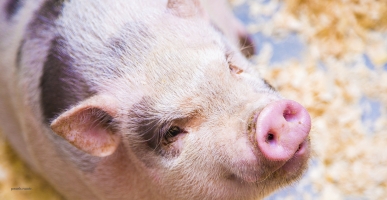Events
Will the African Swine Fever Pandemic Be Stopped?
30 03 2021
African swine fever (ASF) is an extremely dangerous viral disease that affects domestic pigs and wild boars of all ages and sexes. The countries affected by the disease may be challenged by severe economic losses, problems in food safety and trade, and disruption to the pig industry.
There is no treatment for ASF in pigs and no effective vaccines against it. Disease control is based on biosecurity measures. However, the risk of transmission of the ASFV (African swine fever virus) is increased through trade in or imports of live pigs and pig meat products from countries where ASF is prevalent. Evidence shows that the spread of infection to infection-free areas can be prevented if these areas are free of wild boar populations or physical/artificial barriers are in place to prevent direct contact between infected and susceptible animal groups, in which case the infection subsides by itself.
The question arises whether restriction of movement of people, transport, food raw materials, and products during the COVID-19 quarantine will also help to stop the spread of ASF.
The State Food and Veterinary Office and its subdivisions, regional services, and veterinary scientists have been paying sustained attention to diagnosis, assessment, prevention, and control of this dangerous disease. The latest research and statistical data are raising hopes that the spread of ASF, if not eradicated, will at least be significantly reduced.
For more information on African swine fever, see the paper AFRICAN SWINE FEVER: RISK ASSESSMENT, PREVENTION, AND DISEASE CONTROL by Dr Marius Masiulis and Professor Vidmantas Bižokas, a member of the Lithuanian Academy of Sciences.
